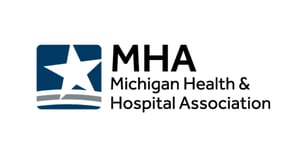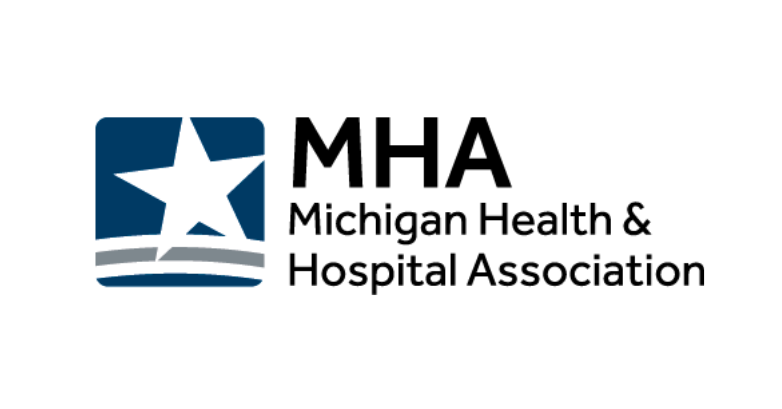
The following article was written by Carlie Austin, BSN, RN, Maternal Infant Health Policy Specialist at the MHA.
In my role as Maternal Infant Health Policy Specialist at the MHA, one of my main goals has been to utilize my expertise to inspire health equity for marginalized birthing persons and their children and to build relationships that strengthen my impact and purpose. Attending the second annual Michigan Social Determinants of Health (SDOH) Summit affirmed how purposeful impact is achieved.
The event, hosted by the Michigan Department of Health & Human Services Jan. 23-25, offered a variety of informative sessions that explored key issues impacting the health and well-being of Michiganders and what solutions foster change when it comes to SDOH. Presenters covered maternal health, behavioral health, childcare, food access, housing and much more. There was also a health equity policy panel featuring my colleague Jim Lee, senior vice president of Health and Data Policy at the MHA that centered around how data and community go hand-in-hand for advancing health equity.
As a healthcare provider who also works in the policy space, I often ask myself how I can be most impactful. I left the event with three key takeaways, that I’ll now be referring to as CUE:
- Collaboration is critical. It is not uncommon for health equity work to feel impossible and in the maternal-infant space specifically, there are a plethora of initiatives across our state aiming to accomplish identical goals. The summit stressed the importance of becoming intentional about how we reduce siloed and duplicative efforts to ensure we’re maximizing our knowledge, resources and scope of impact.
- Utility of information often feels like an undervalued tool for achieving health equity. The summit addressed various ways to effectively communicate and exchange information. In addition to embracing the quantitative data, we must also seek out and listen to the lived experience of community members. During his keynote presentation, Lt. Governor Gilchrist’s said, “lack of information is deadly” – I would build upon that notion by adding that lack of utilizing information is deadly. Knowledge is powerful not only in its existence, but in the manner we use it.
- Earnest effort was a theme threaded throughout the summit. Every person, program and future pathway was rooted in the earnest effort to simply serve people well. Health equity efforts are founded in an earnest response to understanding what people need to achieve prosperous lives and how we justly share our resources to get them there. I appreciate the summit reemphasizing the importance of having principally similar partnerships. I loved this art of action because it aligns with who I am at my core and re-centered that, yes, my earnest effort is vital to eradicating health inequities, but being principally aligned in my pursuits will make the pathway achievable.
I truly enjoyed the summit, and look forward to attending again next year.
About the MHA
Based in greater Lansing, the MHA advocates in Michigan and Washington, DC, on behalf of healthcare providers and the communities and patients they serve. The MHA is a nationally recognized leader on initiatives that protect and promote quality, cost-effective and accessible healthcare. To learn more, visit www.mha.org or follow the MHA on Facebook and Twitter.
###
MHA SVP Jim Lee presented on the Health Equity Policy Panel facilitated by Dr. Renee Canady, CEO of the Michigan Public Health Institute. Lee was joined by Poppy Hernandez, Ponsella Hardaway, and Tommy Stallworth.














